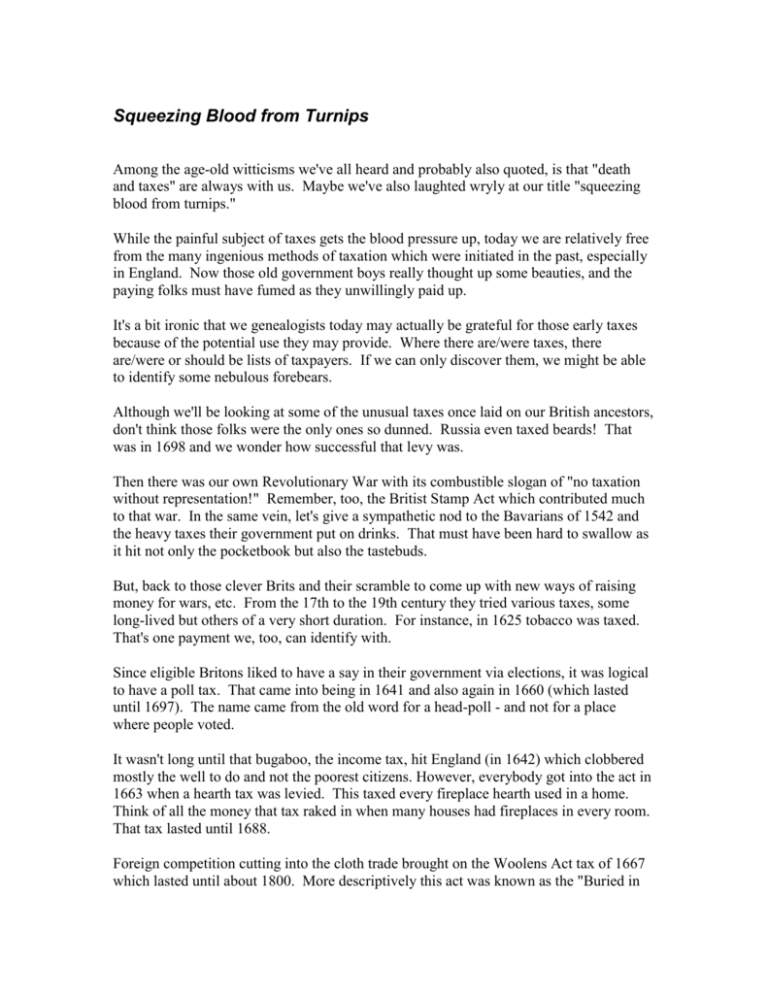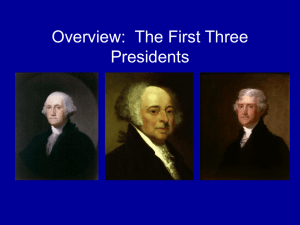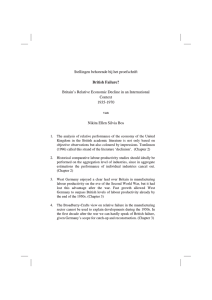Squeezing blood from turnips
advertisement

Squeezing Blood from Turnips Among the age-old witticisms we've all heard and probably also quoted, is that "death and taxes" are always with us. Maybe we've also laughted wryly at our title "squeezing blood from turnips." While the painful subject of taxes gets the blood pressure up, today we are relatively free from the many ingenious methods of taxation which were initiated in the past, especially in England. Now those old government boys really thought up some beauties, and the paying folks must have fumed as they unwillingly paid up. It's a bit ironic that we genealogists today may actually be grateful for those early taxes because of the potential use they may provide. Where there are/were taxes, there are/were or should be lists of taxpayers. If we can only discover them, we might be able to identify some nebulous forebears. Although we'll be looking at some of the unusual taxes once laid on our British ancestors, don't think those folks were the only ones so dunned. Russia even taxed beards! That was in 1698 and we wonder how successful that levy was. Then there was our own Revolutionary War with its combustible slogan of "no taxation without representation!" Remember, too, the Britist Stamp Act which contributed much to that war. In the same vein, let's give a sympathetic nod to the Bavarians of 1542 and the heavy taxes their government put on drinks. That must have been hard to swallow as it hit not only the pocketbook but also the tastebuds. But, back to those clever Brits and their scramble to come up with new ways of raising money for wars, etc. From the 17th to the 19th century they tried various taxes, some long-lived but others of a very short duration. For instance, in 1625 tobacco was taxed. That's one payment we, too, can identify with. Since eligible Britons liked to have a say in their government via elections, it was logical to have a poll tax. That came into being in 1641 and also again in 1660 (which lasted until 1697). The name came from the old word for a head-poll - and not for a place where people voted. It wasn't long until that bugaboo, the income tax, hit England (in 1642) which clobbered mostly the well to do and not the poorest citizens. However, everybody got into the act in 1663 when a hearth tax was levied. This taxed every fireplace hearth used in a home. Think of all the money that tax raked in when many houses had fireplaces in every room. That tax lasted until 1688. Foreign competition cutting into the cloth trade brought on the Woolens Act tax of 1667 which lasted until about 1800. More descriptively this act was known as the "Buried in Woolens" act. Briefly put, everyone was required to be buried in woolen clothes, in a woolen shroud and with woolen lining in the casket, otherwise a fine was levied - almost a form of taxing the dead! More money was always needed so the salt tax was doubled in 1694. The following year the ingenious window tax was implemented and remained in effect until 1851. That window tax got to Scotland in 1748 and lasted until 1798. By the way, we Americans also once had a window tax (the "glass tax" of 1798) but ours didn't last long. In 1712 England imposed a newpaper stamp tax which was quite a big nuisance and eventually became the hated stamp tax which helped bring on the American Revolution. Carriaged were taxed in Britain in 1747, and in 1753 a land tax of two shillings for every pound sterling value was levied in England and Wales. That didn't hit the average tenant who rented property, but the government soon came out with another tax, which covered the majority of folks. This was the tax on inhabited houses levied from 1778 to 1798. That same year real "nuisance" taxes began to nibble away at wealth. Take, for example, the tax on male servants from 1777 to 1798 and the tax on female servants from 1785 to 1792. How about the 1785-1792 tax on carts and the one on wheeled carriages, 17851798? The screws of taxation, especially on Scotland, were turned tighter with a tax on Scottish shops (1785-1798), on clocks and watches (1797-1798), on dogs (1797-1798), on farm horses (1797-1798), and on carriage and riding horses (1797-1798). The year 1798 was a worrisome time for Britain for many reasons. Economically it was a real watershed year. An income tax of 10% on any amounts over 200 pounds sterling was laid on folks that year and collected until 1815. That's when the Napoleonic Wars finally ended. In Scotland an income tax was collected from 1799 until only 1802 - lucky souls! Such a gold mine of money must have been enticing because the income tax was reinstitued in Britain in 1842. And, just to make sure everyone realized that death and taxes are inevitable, Britain imposed death duties or an inheritance tax in 1894. For Britain, check in the various county offices for any tax data each may have, or ask their advice about other repositories of that information. The taxes outlined in this article don't take into account the regular taxes we're all familiar with. Suffice it to say that tax records come in all sorts and places and any we find can be used in genealogy. Let's hope, however, that our own government doesn't try some of the above money collection ideas! - this article by John W. Heisey









